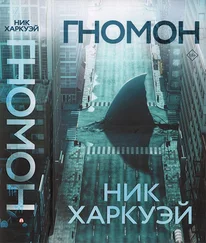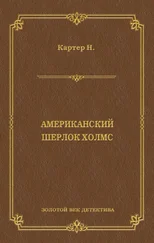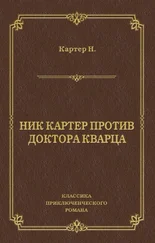For Clare,
like everything else
The gangster is the man of the city,
with the city’s language and knowledge,
with its queer and dishonest skills
and its terrible daring,
carrying his life in his hands like a placard,
like a club.
—ROBERT WARSHOW
I
The socks of the fathers;
mammalian supremacy;
visiting an old lady.
At seven fifteen a.m., his bedroom slightly colder than the vacuum of space, Joshua Joseph Spork wears a longish leather coat and a pair of his father’s golfing socks. Papa Spork was not a natural golfer. Among other differences, natural golfers do not acquire their socks by hijacking a lorryload destined for St. Andrews. It isn’t done. Golf is a religion of patience. Socks come and socks go, and the wise golfer waits, sees the pair he wants, and buys it without fuss. The notion that he might put a Thompson sub-machine gun in the face of the burly Glaswegian driver, and tell him to quit the cab or adorn it… well. A man who does that is never going to get his handicap down below the teens.
The upside is that Joe doesn’t think of these socks as belonging to Papa Spork. They’re just one of two thousand pairs he inherited when his father passed on to the great bunker in the sky, contents of a lock-up off Brick Lane. He returned as much of the swag as he could—it was a weird, motley collection, very appropriate to Papa Spork’s somewhat eccentric life of crime—and found himself left with several suitcases of personal effects, family Bibles and albums, some bits and bobs his father apparently stole from his father, and a few pairs of socks the chairman of St. Andrews suggested he keep as a memento.
“I appreciate it can’t have been easy, doing this,” the chairman said over the phone. “Old wounds and so on.”
“Really, I’m just embarrassed.”
“Good Lord, don’t be. Bad enough that the sins of the fathers shall descend and all that, without feeling embarrassed about it. My father was in Bomber Command. Helped plan the firebombing of Dresden. Can you imagine? Pinching socks is rather benign, eh?”
“I suppose so.”
“Dresden was during the war, of course, so I suppose they thought it had to be done. Jolly heroic, no doubt. But I’ve seen photographs. Have you?”
“No.”
“Try not to, I should. They’ll stay with you. But if ever you do, for some godforsaken reason, it might make you feel better to be wearing a pair of lurid Argyles. I’m putting a few in a parcel. If it will salve your guilt, I shall choose the absolute nastiest ones.”
“Oh, yes, all right. Thank you.”
“I fly myself, you know. Civilian. I used to love it, but recently I can’t help but see firebombs falling. So I’ve sort of given up. Rather a shame, really.”
“Yes, it is.”
There’s a pause while the chairman considers the possibility that he may have revealed rather more of himself than he had intended.
“Right then. It’ll be the chartreuse. I quite fancy a pair of those myself, to wear next time I visit the old bugger up at Hawley Churchyard. ‘Look here, you frightful old sod,’ I shall tell him, ‘where you persuaded yourself it was absolutely vital that we immolate a city full of civilians, other men’s fathers restricted themselves to stealing ugly socks.’ That ought to show him, eh?”
“I suppose so.”
So on his feet now are the fruits of this curious exchange, and very welcome between his unpedicured soles and the icy floor.
The leather coat, meanwhile, is a precaution against attack. He does own a dressing gown, or rather, a towelling bathrobe, but while it’s more cosy to get into, it’s also more vulnerable. Joe Spork inhabits a warehouse space above his workshop—his late grandfather’s workshop—in a dingy, silent bit of London down by the river. The march of progress has passed it by because the views are grey and angular and the place smells strongly of riverbank, so the whole enormous building notionally belongs to him, though it is, alas, somewhat entailed to banks and lenders. Mathew—this being the name of his lamentable dad—had a relaxed attitude to paper debt; money was something you could always steal more of.
Speaking of debts, he wonders sometimes—when he contemplates the high days and the dark days of his time as the heir of crime—whether Mathew ever killed anyone. Or, indeed, whether he killed a multitude. Mobsters, after all, are given to arguing with one another in rather bloody ways, and the outcomes of these discussions are often bodies draped like wet cloth over bar stools and behind the wheels of cars. Is there a secret graveyard somewhere, or a pig farm, where the consequences of his father’s breezy amorality are left to their final rest? And if there is, what liability does his son inherit on that score?
In reality, the ground floor is entirely given over to Joe’s workshop and saleroom. It’s high and mysterious, with things under dust sheets and—best of all—wrapped in thick black plastic and taped up in the far corner “to treat the woodworm.” Of recent days these objects are mostly nothing more than a couple of trestles or benches arranged to look significant when buyers come by, but some are the copper-bottomed real thing–timepieces, music boxes, and best of all: hand-made mechanical automata, painted and carved and cast when a computer was a fellow who could count without reference to his fingers.
It’s impossible, from within, not to know where the warehouse is. The smell of old London whispers up through the damp boards of the saleroom, carrying with it traces of river, silt and mulch, but by some fillip of design and ageing wood it never becomes obnoxious. The light from the window slots, high above ground level and glazed with that cross-wired glass for security, falls at the moment on no fewer than five Edinburgh long-case clocks, two pianolas, and one remarkable object which is either a mechanised rocking horse or something more outré for which Joe will have to find a rather racy sort of buyer. These grand prizes are surrounded by lesser ephemera and common-or-garden stock: crank-handle telephones, gramophones and curiosities. And there, on a plinth, is the Death Clock.
It’s just a piece of Victorian tat, really. A looming skeleton in a cowl drives a chariot from right to left, so that—to the Western European observer, used to reading from left to right—he is coming to meet us. He has his scythe slung conveniently across his back for easy reaping, and a scrawny steed with an evil expression pulls the thing onward, ever onward. The facing wheel is a black clock with very slender bone hands. It has no chime; the message is perhaps that time passes without punctuation, but passes all the same. Joe’s grandfather, in his will, commended it to his heir for “special consideration”—the mechanism is very clever, motivated by atmospheric fluctuation—but the infant Joe was petrified of it, and the adolescent resented its immutable, morbid promise. Even now—particularly now, when thirty years of age is visible in his rear-view mirror and forty glowers at him from down the road ahead, now that his skin heals a little more slowly than it used to from solder burns and nicks and pinks, and his stomach is less a washboard and more a comfy if solid bench—Joe avoids looking at it.
The Death Clock also guards his only shameful secret, a minor, practical concession to the past and the financial necessities. In the deepest shadows of the warehouse, next to the leaky part of the wall and covered in a grimy dust sheet, are six old slot machines—genuine one-armed bandits—which he is refurbishing for an old acquaintance named Jorge. Jorge (“Yooorrr-geh! With passion like Pasternak!” he tells new acquaintances) runs a number of low dives which feature gambling and other vices as their main attractions, and Joe’s job is to maintain these traditional machines—which now dispense tokens for high-value amounts and intimate services rather than mere pennies—and to bugger them systematically so that they pay out only on rare occasions or according to Jorge’s personal instruction. The price of continuity in the clockworking business is minor compromise.
Читать дальше
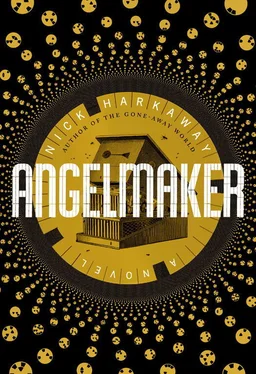

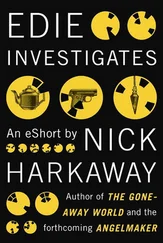

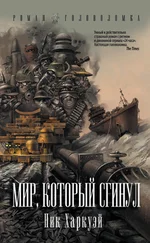

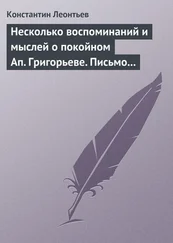

![Ник Харкуэй - Гномон [litres]](/books/400023/nik-harkuej-gnomon-litres-thumb.webp)
